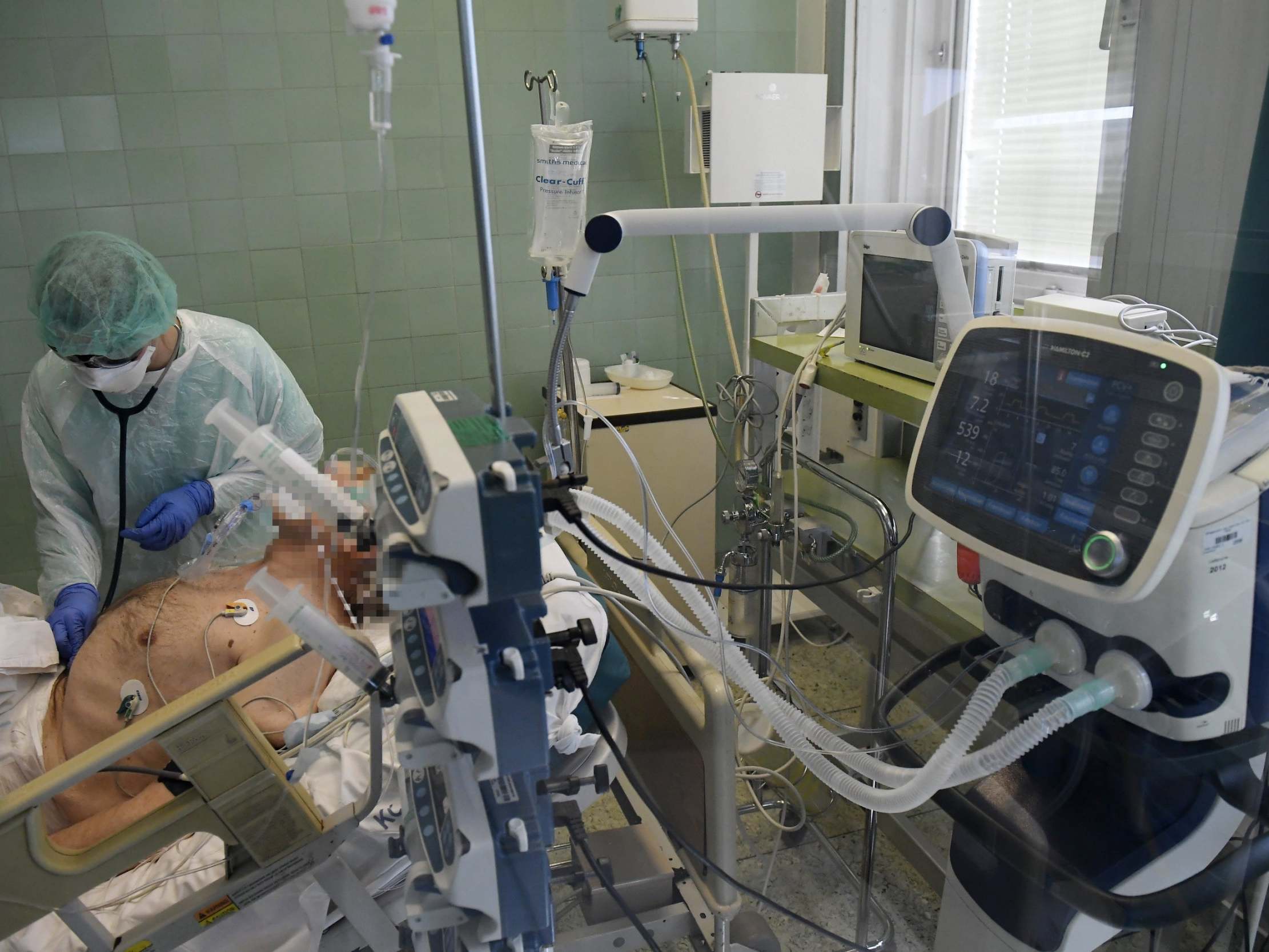Coronavirus: Lives could be at risk from thousands of new ventilators for the NHS, warn safety experts
Devices ‘being designed and manufactured quickly by firms with little or no healthcare knowledge or manufacturing experience of medical devices’

Your support helps us to tell the story
From reproductive rights to climate change to Big Tech, The Independent is on the ground when the story is developing. Whether it's investigating the financials of Elon Musk's pro-Trump PAC or producing our latest documentary, 'The A Word', which shines a light on the American women fighting for reproductive rights, we know how important it is to parse out the facts from the messaging.
At such a critical moment in US history, we need reporters on the ground. Your donation allows us to keep sending journalists to speak to both sides of the story.
The Independent is trusted by Americans across the entire political spectrum. And unlike many other quality news outlets, we choose not to lock Americans out of our reporting and analysis with paywalls. We believe quality journalism should be available to everyone, paid for by those who can afford it.
Your support makes all the difference.The rush to create thousands of new ventilators for the NHS during the coronavirus outbreak could cost lives if staff make inadvertent mistakes due to different machine designs, experts have warned.
Nurses and doctors working in intensive care units and at the new NHS Nightingale field hospitals could be forced to use 10 different types of ventilators to help patients breathe, with risks staff may accidently press the wrong buttons or misread information on their screens.
Patient safety specialists from The Chartered Institute of Ergonomics and Human Factors (CIEHF) have warned that the multiple companies drafted in by the UK government to help build new machines must follow a standard design and protocols to prevent avoidable harm to patients.
It has put together a panel of experts who are working with intensive care doctors to draw up guidelines for the safe design of new ventilators and to come up with a usability test to make sure the machines do not create unnecessary risk.
The government has admitted it does not have enough ventilators to cope with expected numbers of seriously ill coronavirus patients and has appealed to manufacturers to help build new ones.
Companies including McLaren and Dyson have come forward and offered to help create 10,000 new devices. A consortium called Ventilator Challenge UK includes some of the country’s largest businesses including BAE Systems, Airbus, Thales, Ford, Renishaw, Rolls-Royce and Smiths.
The CIEHF has said it fears accidents could happen on wards unless the new machines are standardised and tested for how easy and safe they are to use.
It has convened a panel led by Professor Sue Hignett of Loughborough University to directly advise on how best to design the new devices and is working with the Faculty of Intensive Care Medicine on how to test them.
Prof Hignett said: “The way the consortium has rallied together to tackle the shortage of ventilators is admirable and critical for providing the best healthcare for people struck down by coronavirus.
“However, creating new medical technology that works as intended – so that staff can understand and operate it effectively – is a huge challenge.”
She said the practical use of the machines by staff needed to be factored in.
“Staff will be wearing personal protective equipment and working longer shifts in stressful conditions and Nightingale hospitals could have up to 10 different types of ventilators. Wards will need devices that do not harm patients because staff are accidently pressing the wrong buttons or misreading screens. The fewer chances for error the better for everyone.”
A number of companies from the Ventilator Challenge consortium are working with the CIEHF to speed up the design process.
Dr Noorzaman Rashid, chief executive of the CIEHF, added: “Ventilators are being designed and manufactured quickly by firms with little or no healthcare knowledge or manufacturing experience of medical devices.
“The rapid design and manufacturing processes for Covid-19 mean that these complex devices are not undergoing appropriate usability testing, which means that they can cause unnecessary harm as a result of human error.”
Thousands of avoidable mistakes are made every year in the NHS due to genuine human error, and often they can be designed out using a human factors approach which aims to consider how people truly work and behave day to day.
The method has been used in other safety-critical industries such as aviation and nuclear power and has been adopted by the NHS as a new approach to improving its record on patient safety.
Join our commenting forum
Join thought-provoking conversations, follow other Independent readers and see their replies
Comments